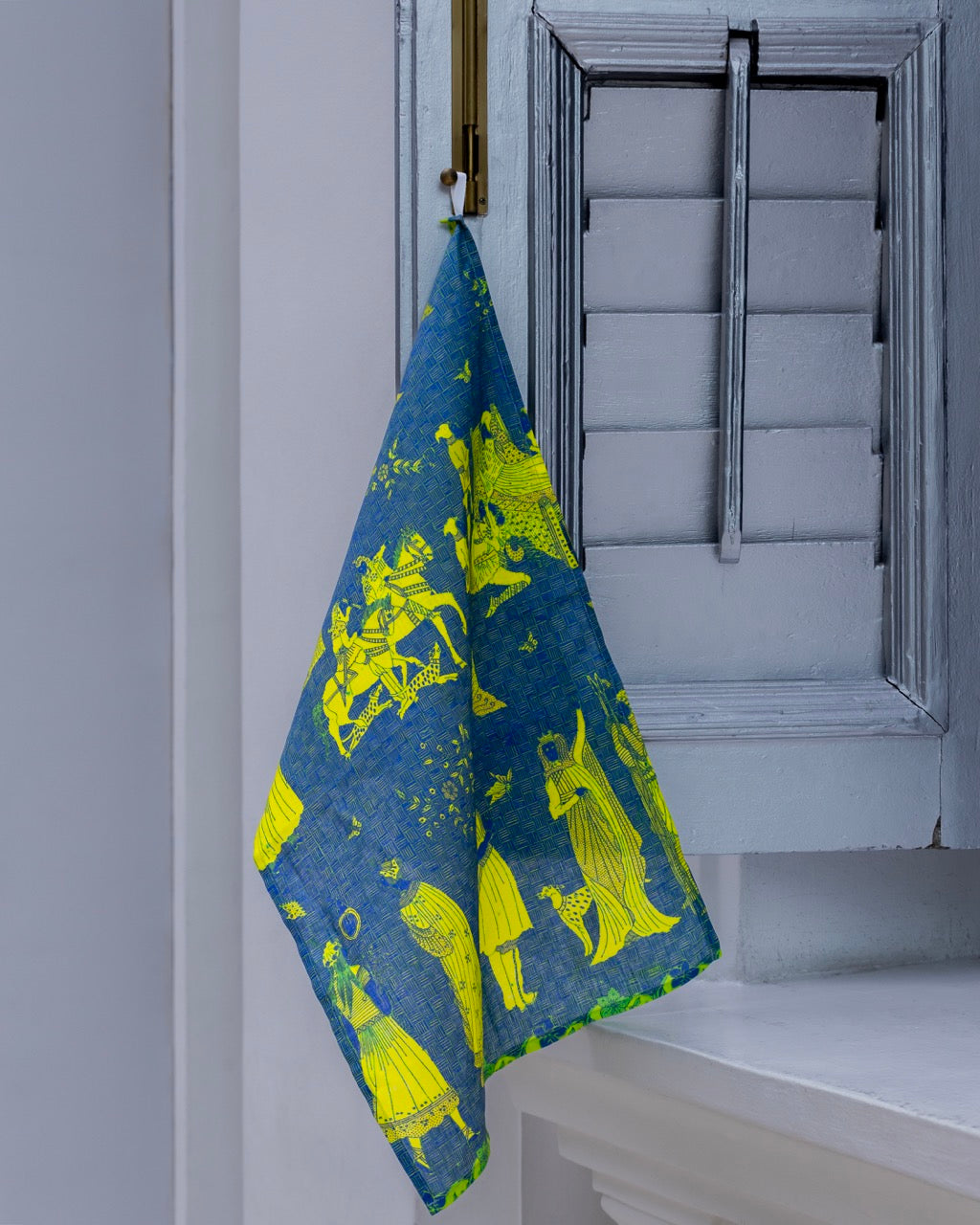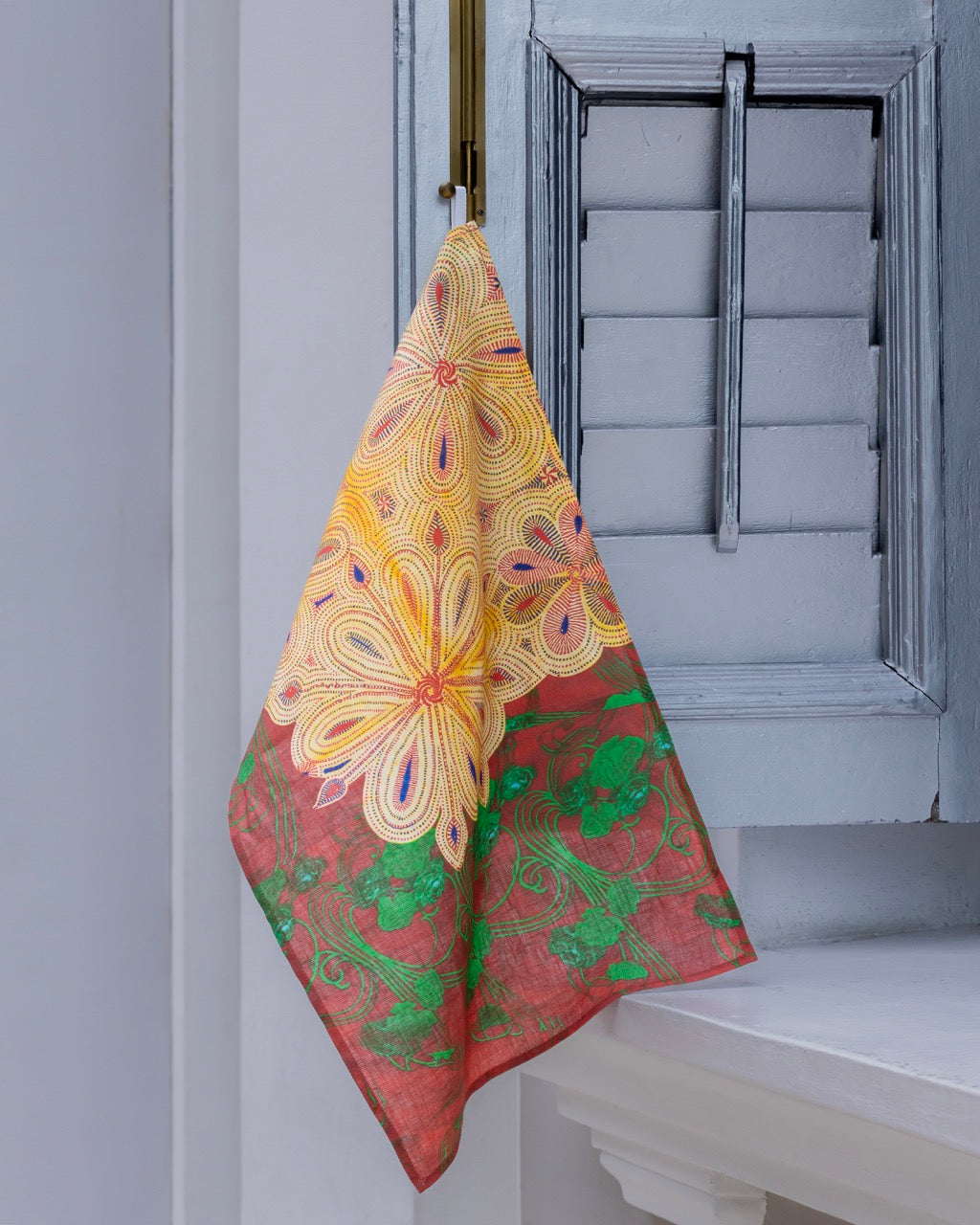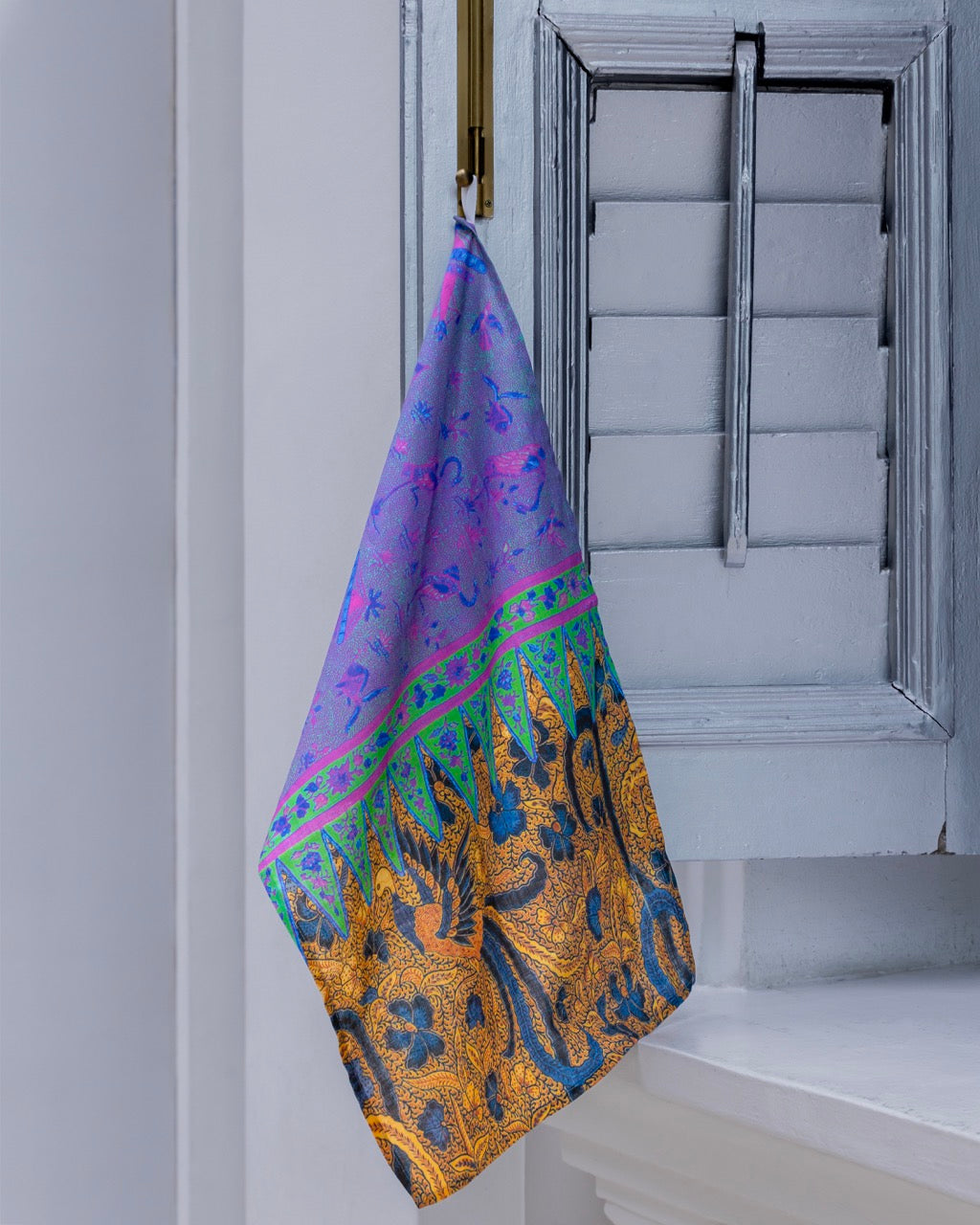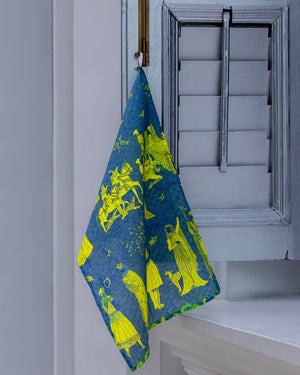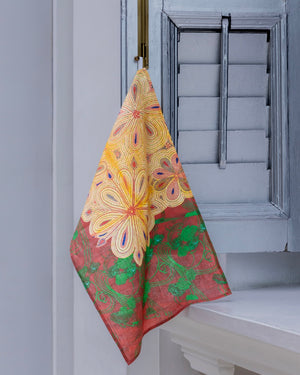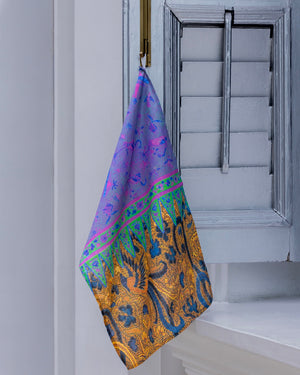NATIONAL COLLECTION X MUSEUM MARTKET TEA TOWEL
$38.90 SGD
50 x 70 cm
KANTHA EMBROIDERY WITH FLORAL MOTIFS
West Bengal, India 20th Century Embroidery
Collection of Indian Heritage Centre
2013-00525
Kantha is a form of quilted embroidery skillfully crafted by the women of Bengal, India. These artisans create many items, including bedspreads, wraps, and book or mirror covers, intended for domestic use or as thoughtful gifts. Kantha pieces draw inspiration from a diverse array of influences, encompassing rural scenes, city life, modernization, mythological narratives, and the incorporation of floral and vine motifs. Utilizing recycled cloth and yarn sourced from old saris, these intricate works exemplify a harmonious blend of tradition and sustainability. In this example, large floral motifs placed within squares form a repetitive pattern.
SARI
Singapore, mid-1970s
Textile
Collections of the National Museum of Singapore
2005-01258
Gift of Mrs. Nalini C. Chenteley
An Indian sari bearing swirls and rose motifs, a pattern reflective of the stylistic conventions of the 1970s. Typically worn over a blouse and petticoat, this particular sari is made of synthetic nylon fibres and is lighter and thinner than the traditional silk or cotton ones, allowing its wearer to enjoy a tighter fit.
MALAY BATIK SARONG
Singapore, mid-late 20th century
Textile
Collection of the National Museum of Singapore
2000-07881
A Malay batik sarong with intricate phoenix and floral motifs. Used by both men and women, a sarong is a length of cloth with a myriad practical uses, one of which is for wrapping around the waist as a garment.
BATIK SKIRTCLOTH WITH BIRDS, BOATS AND AEROPLANES MOTIFS
Pekalongan, northern coast of Java,1960s
Textile
Collection of Asian Civilisations Museum
2010-03486
This sarong is, in this particular style known as kompanie batik, one of the most unique batik styles developed in Indonesia in the early nineteenth century, during the Dutch colonial period. The patterns and motifs blended Indonesian and European visual sensibilities. Modern images of aeroplanes and ships are portrayed in a fantastical style alongside birds and fish.
SARONG M.P SOERIDO
Java, Pekalongan, around 1910
Cotton (drawn batik)
Collection of Peranakan Museum
2011-02024
Scenes from "Snow White" are depicted across the badan (the main field of the batik design). European fairy tales became a popular subject for batik-makers in Pekalongan by the end of the 19th Century. The signature at the top of the kepala (a panel in a different pattern or colour from the badan) reveals that it was made in a workshop owned by M.P Soediro.
Made in Lithuania


